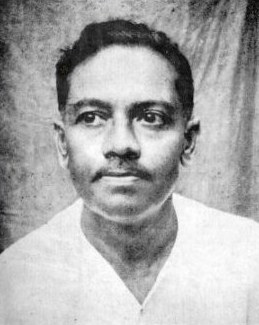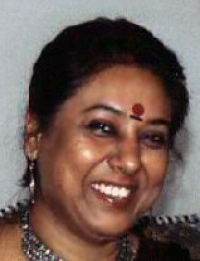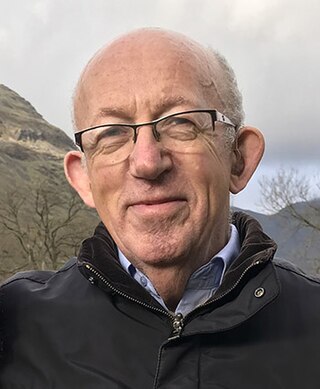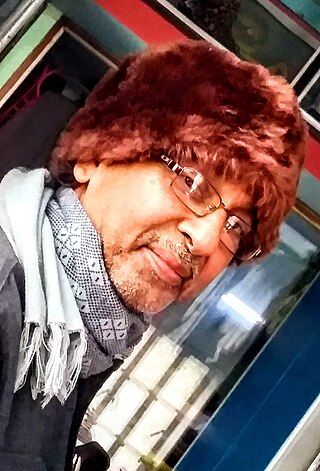
K. Satchidanandan is an Indian poet and critic, writing in Malayalam and English. A pioneer of modern poetry in Malayalam, a bilingual literary critic, playwright, editor, columnist and translator, he is the former editor of Indian Literature journal and the former secretary of Sahitya Akademi. He is also social advocate for secular anti-caste views, supporting causes like environment, human rights and free software and is a well known speaker on issues concerning contemporary Indian literature. He is the festival director of Kerala Literature Festival.
Indian poetry and Indian literature in general, has a long history dating back to Vedic times. They were written in various Indian languages such as Vedic Sanskrit, Classical Sanskrit, Ancient Meitei, Modern Meitei, Telugu, Tamil, Odia, Maithili, Kannada, Bengali, Assamese, Hindi, Marathi and Urdu among other prominent languages. Poetry in foreign languages such as English also has a strong influence on Indian poetry. The poetry reflects diverse spiritual traditions within India. In particular, many Indian poets have been inspired by mystical experiences. Poetry is the oldest form of literature and has a rich written and oral tradition.

Jibanananda Das was a Bengali poet, writer, novelist and essayist in the Bengali language. Popularly called "Rupashi Banglar Kabi'', Das is the most read Bengali poet after Rabindranath Tagore and Kazi Nazrul Islam in Bangladesh and West Bengal. While not particularly well recognised during his lifetime, today Das is acknowledged as one of the greatest poets in the Bengali language.

Sankha Ghosh was an Indian poet and literary critic. He was born in Chandpur District of the then Bengal Presidency, present day Bangladesh. His ancestral home was at Banaripara Upazila in Barisal District. He spent his childhood and adolescence in Ishwardi Upazila of Pabna District, which was his father's workplace.
Kanhaiyalal Sethia was a well-known Rajasthani and Hindi poet. He was born in Sujangarh, in what is now Churu District in the Indian state of Rajasthan. He was a passionate supporter of making Rajasthani, the mother tongue of the people of Rajasthan, at the union level. He was a government-recognized freedom fighter, social worker, reformer, philanthropist and environmentalist. He is known as fulfulling the role of the Yug-Charan for his nationalistic poetry during the freedom struggle.

Buddhadeva Bose, also spelt Buddhadeb Bosu, was an Indian Bengali writer of the 20th century. Frequently referred to as a poet, he was a versatile writer who wrote novels, short stories, plays and essays in addition to poetry. He was an influential critic and editor of his time. He is recognised as one of the five poets who moved to introduce modernity into Bengali poetry. It is said that since Rabindranath Tagore, there has not been a more versatile talent in Bengali literature.

Subhash Mukhopadhyay was one of the foremost Indian Bengali poets of the 20th century. He is also known as the "podatik kobi" in the field of Bengali literature. A book of thirty of Subhash's best known poems in English translation, titled ' As Day is Breaking', was published in 2014 by Anjan Basu, a Bangalore-based writer/critic. The book includes a rather detailed introduction to the poet's work as well. He was honoured with Jnanpith Award in 1991.

Mallika Sengupta was a Bengali poet, feminist, and reader of Sociology from Kolkata, known for her "unapologetically political poetry".
Swadesh Bharati is a Hindi poet, recipient of "Premchand Award" and "Sahitya Bhushan Award". He lives in Kolkata from where he edits Rupambara, a literary bilingual quarterly journal. He has been in active field of creative writing since more than 45 years. He is chairman of Rashtriya Hindi Academy and was guest lecturer at Madaras Christian Academy.

Arun Mitra was an Indian poet of Bengali, who also translated French literature.

Bishnu Dey was a leading Bengali poet, writer, essayist, academician, art appreciator, and connoisseur in the era of modernism and post-modernism.

Joe Winter is a British poet, literary critic and translator of poetry. A recent long poem is At the Tate Modern. His translations of the Bengali poets Rabindranath Tagore and Jibanananda Das are published by Carcanet Press, and his versions in modern English of the Anglo-Saxon epic Beowulf and the Middle English poem Pearl are with Sussex Academic Press. SAP has also published Two Loves I Have: a new reading of Shakespeare’s Sonnets and Hide Fox, and All After: What lies concealed in Shakespeare's 'Hamlet'?
Subimal Basak is an Indian fiction writer. He is a member of the Hungry generation, with Samir Roychoudhury, Falguni Roy, Shakti Chattopadhyay and the movement's creator Malay Roy Choudhury.
Alokeranjan Dasgupta was a Bengali poet who was the author of over 20 books of poetry. He translated Bengali and Santal poetry and plays into English and German, and also translated literature from German and French into Bengali. He also published a number of books of essays, and was well known for his distinctive prose style.

Chinmoy Guha is an Indian essayist, translator, and a scholar of French language and literature, currently serving as Professor Emeritus at the University of Calcutta. He has served as the Vice-Chancellor of Rabindra Bharati University and Director of Publications, Embassy of France, New Delhi. Earlier he taught English at Vijaygarh Jyotish Ray College in Kolkata for more than two decades, and French at the Alliance Française and the Ramakrishna Mission Institute of Culture for eleven and five years respectively.
Utpal Kumar Basu was a Bengali poet and story teller.

Arup Chandra, born in 1951 in Murshidabad district in the state of West Bengal, is a writer, poet, essayist, art critic, and an educator. He is the writer of more than fourteen books, and has edited twelve others. Two of his books are translated into English and published. His research speciality is the history, poetry, art, culture and literature of Murshidabad District.
Dileep Manubhai Jhaveri is an Indian Gujarati-language poet, playwright, translator, editor and physician from Mumbai, India. He is a recipient of the Sahitya Akademi Award (2024).
Major poetry related events taking place worldwide during 2021 are outlined below under different sections. This includes poetry books released during the year in different languages, major literary awards, poetry festivals and events, besides anniversaries and deaths of renowned poets etc. Nationality words link to articles with information on the nation's poetry or literature.












